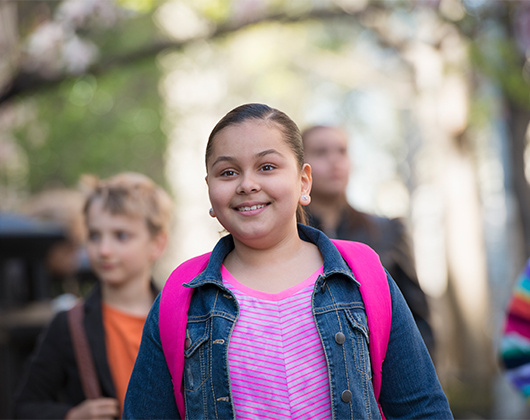Suicide Prevention Training
- Take Action
- Training
There are many courses and materials available to organizations and groups who want to take the next step in promoting suicide prevention and mental health awareness. Funding is available to cover costs associated with some options — fill out our Request Training form or contact us for details.
Mental Health First Aid (MHFA)
Mental Health First Aid is an 8-hour course that teaches the public how to help someone who is developing a mental health problem or experiencing a mental health crisis. Mental Health First Aid offers specialty modules in Higher Education, Military Members, Veterans & Their Families, Public Safety, Older Adults and Rural Communities.
Teen Mental Health First Aid (tMHFA)
Teen Mental Health First Aid (tMHFA) is a total of 4.5 hours, with either three 1.5-hour sessions, or six 45-minute sessions. It teaches teens in grades 10–12 or ages 15–18 how to identify, understand and respond to signs of mental health and substance use challenges among their friends and peers.
Youth Mental Health First Aid (YMHFA)
Youth Mental Health First Aid reviews the unique risk factors and warning signs of mental health problems in adolescents ages 12–18. The 8-hour course emphasizes the importance of early intervention and covers how to help and adolescent in crisis or experiencing a mental health challenge.
Natural Helpers of South Dakota
Natural Helpers of South Dakota trains middle and high school-aged students on ways they can help during difficult situations. These students are selected by their peers using an anonymous school-wide survey. Students are trained to recognize when they can help their peers and when to ask a trusted adult for help with issues beyond the student’s comfort level. This training can be provided in a virtual or in-person format — however, since this training requires a complete school day of 6.5-7 hours, it is strongly encouraged to facilitate this course in person. After the training, further instruction, education and support will be offered based on the needs of the school.
Question, Persuade, Refer (QPR)
QPR is a 1- to 2-hour training that teaches three simple steps that anyone can learn to help save a life from suicide. Just as people trained in CPR help save thousands of lives each year, people trained in QPR learn how to recognize the warning signs of a suicide crisis and how to question, persuade and refer someone to help.QPR offers specialty modules for School Health Professionals, Farmers, School Settings, Native Americans, Late Life Suicide, Residential, Law Enforcement & Emergency Service Professionals and Youth.
Means Safety
Means Safety is designed to help parents and adult caregivers of at-risk youth recognize the importance of taking immediate, new action to restrict access to firearms, alcohol and prescription and over-the-counter drugs in the home. The intervention also gives parents and caregivers specific, practical advice on how to dispose of or lock up firearms and substances that may be used in a suicide attempt.
PsychArmor Courses
PsychArmor's courses are for those who interact with service members, veterans, and their families. These courses provide valuable education on military culture, including suicide prevention, military values, transitions and more. The platform is self-paced and offers the knowledge and skills to engage meaningfully with the SMVF community personally and professionally. The platform has over 200 trainings and resources to understand the SMVF community and provide culturally competent care offered at no-cost in South Dakota.
Newsletter
Each quarter, South Dakota Suicide Prevention releases a newsletter that highlights upcoming events and areas of focus, as well as facts and figures that help communities stay informed about what they’re doing well and what they could improve. Click here to subscribe to receive future newsletters.









